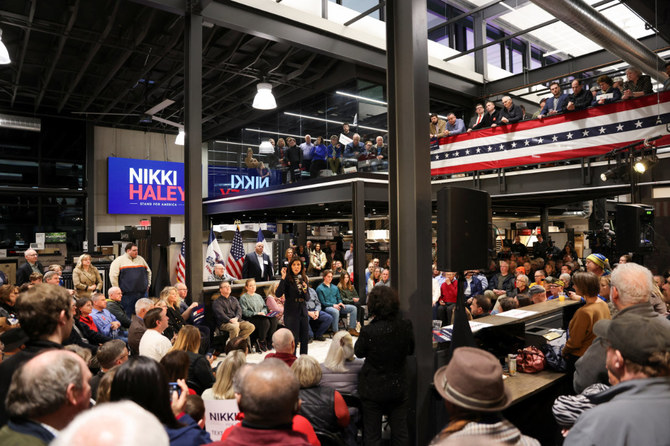Kerry Boyd Anderson
US President Joe Biden has only been in the White House for slightly more than two years, but the next presidential campaign is already getting started. For anyone who loves political horse race coverage, there will be months of predictions to enjoy before the November 2024 election. For anyone who wants to follow US politics without engaging in a nearly constant stream of election news, it is time to start paying some attention – but not too much.
Before Americans vote for president, the Republican and Democratic parties must choose their nominees through a series of state-level primaries and caucuses. Typically, a party with an incumbent completing his first term as president nominates him to run again. However, the current Democratic nomination process faces some challenges. Biden is 80 years old – the oldest president to ever serve in Washington. His approval ratings are relatively low, around 42 percent, though approval ratings may be less useful than in the past. Additionally, the Democrats are changing the order of state caucuses and primaries for the first time in decades, which introduces new uncertainties.
Nonetheless, Biden appears likely to run for reelection. Many Democrats saw his recent State of the Union speech as a resounding success and he has a long history of winning elections. While many Democrats would prefer a younger candidate, it is not clear who could step in. The most obvious choice is Vice President Kamala Harris, but her term so far has been challenging and she has low approval ratings. As long as he remains healthy, Biden is the most likely Democratic nominee.
The Republican race is likely to be far more contested. So far, two serious candidates have announced campaigns: Former President Donald Trump and former South Carolina governor and ambassador to the UN Nikki Haley. More candidates are likely to join the race. So far, polls show two front-runners: Trump and Florida Gov. Ron DeSantis. Other potential candidates are far behind. A recent Reuters/Ipsos poll of Republican voters found that 42.8 percent expressed support for Trump as the nominee, compared to 30.6 percent for DeSantis, 7.5 percent for former Vice President Mike Pence and 3.9 percent for Haley, with all others trailing behind.
In many ways, Trump is well positioned to gain the Republican Party’s nomination. He has huge name recognition and extensive support among Republicans. A recent Morning Consult poll found that 74 percent of Republican primary voters have a favorable view of Trump. He has already raised impressive sums of money to fund his campaign.
Yet, Trump faces challenges. While many Republicans approved of his presidency, many of them are ready for someone new. Republican critics of Trump form a small minority; his bigger problem is that more Republicans see him as carrying a lot of baggage that might hurt his chances of winning the general election. One of his major advantages when he campaigned the first time was that he appeared new and like an outsider; many voters liked the idea of a “businessman” in charge of government. Today, Trump has a record as a divisive politician. Also, he has won one of two elections – not a great record for a presidential candidate.
Haley has leaned heavily into the idea that the Republicans need a changing of the guard. In her Feb. 14 campaign announcement, she said that Americans are “more than ready for a new generation” of leaders, adding that “America is not past our prime. It’s just that our politicians are past theirs.” Haley directly criticized Biden, but her jabs at aged politicians also apply to Trump.
Many pundits expect DeSantis to run, though he has not announced a decision yet. He whas leveraged his position as governor to make very public statements against liberal values and immigration. DeSantis has cultivated an image of himself as a warrior against “woke ideology.” As he said in a recent speech: “We will never surrender to the woke mob.” Many Republicans see DeSantis as someone who has Trump’s combative spirit without Trump’s baggage. Some political experts have suggested that DeSantis might announce his candidacy this summer. Trump has expressed annoyance that DeSantis might challenge him, calling him “disloyal.” Other Republicans have started making the usual moves in advance of a potential campaign, such as visiting Iowa (the first Republican caucus state) and reaching out to potential staffers and donors. Pence, South Carolina Sen. Tim Scott, former Secretary of State Mike Pompeo and several other senators and governors are potential candidates.
It is still early in the race. Both parties’ primaries and caucuses to choose a nominee will likely begin in February 2024, so we still have a year of speculation and campaigning before any type of voting begins. A lot can change in that time and no one should assume that they know who will be inaugurated as president in January 2025.
Nonetheless, current events offer important clues about how the contests will shape both political parties. Haley’s candidacy will tell us a lot about the future of women in the Republican Party. We will learn more about Trump’s long-term influence on the party. A likely Biden reelection campaign will reveal more about the influence of progressives versus moderates in the Democratic Party. Candidates’ platforms, speeches and debates will shape which issues will dominate the election; among Republicans, opposition to “wokeism” and addressing border security are clearly going to be big topics. To understand the future of US politics, start paying attention to these early races, but remember that much will change before Americans head to the polls again.
Arab News







